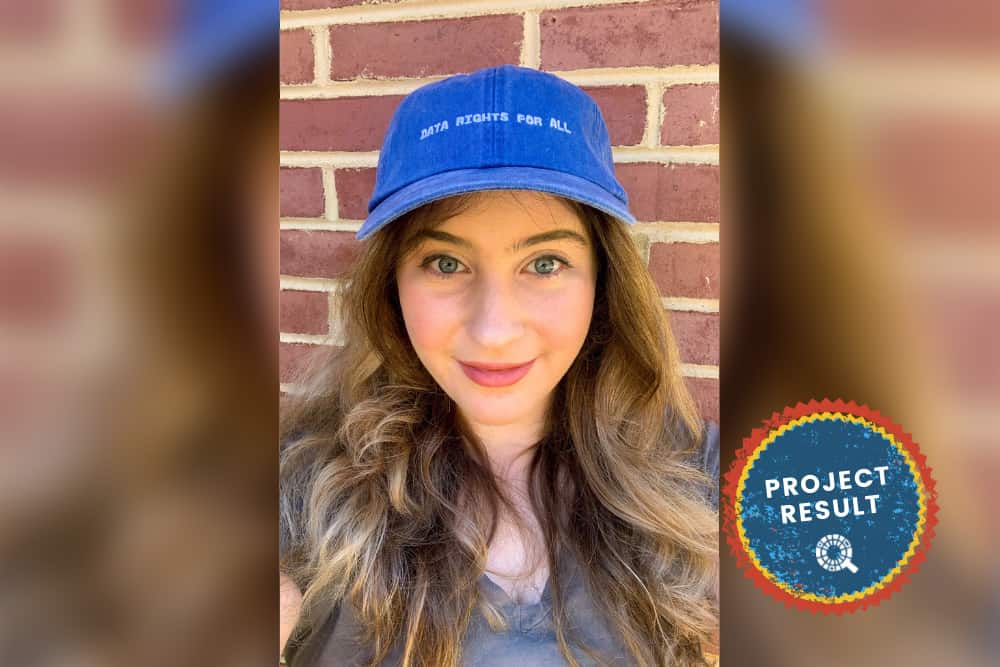Dr. Elissa M. Redmiles is a faculty member and research group leader of the Safety & Society group at the Max Planck Institute for Software Systems. She has additionally served as a consultant and researcher at multiple institutions, including Microsoft Research, Facebook, the World Bank, the Center for Democracy and Technology, and the University of Zurich. Elissa’s research interests are broadly in the areas of security and privacy. She uses computational, economic, and social science methods to understand & model users’ safety decision-making processes. She recently co-authored an article in Wired entitled “Citizen Science Projects Offer a Model for Coronavirus Apps” in which she spoke about the potential value of data donation through Citizen Science projects particularly in the global fight against Corona.
Sally Reynolds: How well advanced is the idea of data donation as a contribution to scientific research in your experience? What kinds of research areas are benefitting from such donations?
Elissa M. Redmiles: The most traditional form of data collection is of course traditional research, that is, participants who are recruited (and typically compensated) and then interviewed, surveyed, or observed in order for researchers to collect data about e.g., their sleep patterns, their response to a medication, etc. Data donation is a modified form of this in which the data is not collected by researchers. Instead it’s generated by say medical professionals who document a patient’s information in their health chart or a technology company that collects and stores a massive amount of data about their users. The individual who this data is about has a right to request it under various regulations, and they have a right to then donate this data to whomever they want.
We’re seeing great excitement about this approach in healthcare and are beginning to see more excitement in other fields, like computer science and political science. Right now, there are a lot of open questions that are delaying acceleration of this method, like how to appropriately request consent from data donators. Will they be told up front all the possible ways their data will be used? If a new research question comes up will they give consent again? There are also questions around how to scale data collection. Platforms like Mozilla’s Rally are starting to try to tackle the scaling portion, although they are doing their own data collection more like traditional research vs. just collecting donated data already generated elsewhere.
There are also questions around how to scale data collection.
S.R: Why do you think we are seeing more and more interest in the idea of data donation in general?
E.M.R.: Our society is becoming increasingly data driven. There is tons and tons of data being generated and recorded about each of us everyday. But, very little of this data is actually getting used. At the same time, science funding is shrinking and scientists struggle to get the data they need – especially real-world data – to answer important scientific questions. For data subjects, this data is already collected about them often by companies, and so they would like it to actually do something good for either them or society. For scientists, this data is incredibly valuable and often far larger scale than what can typically be generated with scientific experiments. Plus, this data has often been collected since the very beginning of say someone’s cancer treatment or use of a particular digital platform. Thus, this offers longitudinal data that can span years, something that was traditionally a huge amount of effort for scientists to collect, since they would have to run a study over many years and ensure funding and continuity of participants over that time.
There is tons and tons of data being generated and recorded about each of us everyday. But, very little of this data is actually getting used.
S.R: What do you believe to be the advantages for citizen themselves in offering up their own personal data to be used in scientific research?
E.M.R.: People are increasingly aware of and concerned about corporate data collection. Data donation can be an opportunity for them to take back power and use that data in a way they want it to be used. Ideally, citizens will eventually be able to do research on their own data in partnership with scientists, or on their own. That, to me, would be the true achievement of Citizen Science.
S.R: How well prepared are Citizen Science projects to manage data donation? In general do you believe such projects know enough about data protection and management to make such practices both effective and responsible?
E.M.R.: At least among the folks I know working on such things, this is one of the most central points of conversation. How do we do appropriate informed consent? How should we store data? What will make people feel most comfortable? Indeed, this is the subject of some of my current research: exploring what stringent, technical privacy protections are most appropriate and how we can make them transparent to people.
S.R.: What do you believe to be the defining factors that make people want to donate their data to CS type projects?
E.M.R.: I think we need more research in this area, but from what I have seen thus far, people are motivated by pro-sociality (wanting to do something good for society), egocentricity (wanting to support something dear to them, for example, donating data for COVID if they know someone who died, donating data for cancer research if they are in remission from cancer themselves), empowerment (taking back control of their data), and of course compensation.
S.R.: Many thanks for your input Elissa.
